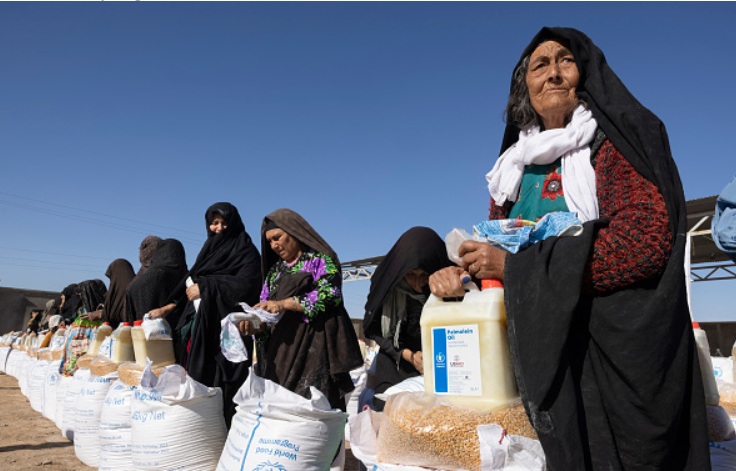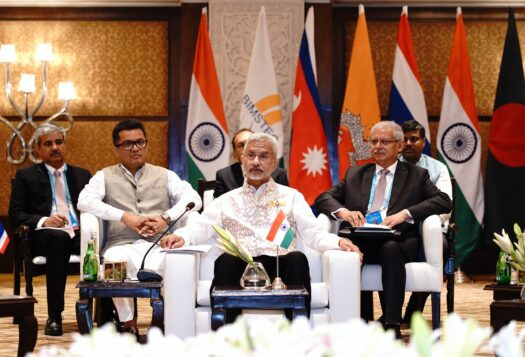
While all eyes remain on the current Russian onslaught in Ukraine and unfolding refugee exodus into Europe, another humanitarian crisis has worsened in Russia’s neighborhood: Afghanistan.
The invasion of Ukraine has immediate humanitarian implications for Afghanistan. As approximately 23 million Afghans—more than 55 percent of the total population—face acute hunger, the drastic increase in the prices of imported essentials, such as milk, biscuits, and cooking oil, will intensify food insecurity and widespread starvation in the country. The conflict has also exacerbated existing supply chain disruptions that could further delay the delivery of humanitarian aid from abroad. This humanitarian aid, along with refugee resettlement assistance, will be shifted from Afghanistan to Ukraine, as Western countries suffer war fatigue with Afghanistan and face a more immediate threat in Ukraine. There are already indications of this: Afghanistan has only received a total of USD $1.6 billion in the six months after the Taliban takeover, while the United States alone has already approved USD $13.6 billion in emergency spending within weeks to assist Ukraine’s fight against Russia. Afghanistan must directly compete for resources and aid from the West with Ukraine, with Western donors already prioritizing the latter conflict while sidelining the drastic consequences of a twenty-year war in the former.
Afghanistan must directly compete for resources and aid from the West with Ukraine, with Western donors already prioritizing the latter conflict while sidelining the drastic consequences of a twenty-year war in the former.
Russia’s military offensive in Ukraine may also have implications for regional diplomacy in Afghanistan. In the months after the Taliban takeover of Afghanistan, Russia seemed to take advantage of the United States’ disastrous exit and subsequent policy blunders to reassert its influence while attempting to address the emerging challenges the takeover posed to the region through talks with the Taliban and other countries. In line with most other governments—including in the West—Russia has urged the Taliban to form a more inclusive government and withheld formal recognition while calling for more humanitarian aid, leaving many to hope that it could take the lead towards working with other regional actors towards the common goal of maintaining stability and security in Afghanistan.
Now that Russia’s focus is preoccupied with Ukraine, the lack of leadership from the international community on Afghanistan might also spell political consequences for the region. Russia’s commitment to help maintain the collective security of Central Asian states bordering Afghanistan through the Cooperative Security Treaty Organization (CSTO)—a Russia-led military alliance of former Soviet states—and joint military drills remains in question with the Russian military mostly occupied in Ukraine. Assisting Central Asian governments to curb cross-border terrorism and maintain regional stability will also be more difficult for Russia with its economy severely impacted by sanctions. The Taliban also stands to benefit politically as negative international attention on their human rights abuses wanes in the wake of heightened focus on Russian aggression in Ukraine, granting them the space to consolidate political control without significant international interference. The group has even called for “restraint” from both Russia and Ukraine and an end to the crisis through “dialogue and peaceful means.”
Though Russia may be eager to demonstrate that it can simultaneously engage in Afghanistan while conducting its military assault on Ukraine, its international isolation coupled with heightened Western disengagement will only reduce focus and multilateral cooperation on Afghanistan. As the international community prioritizes the evolving situation in Ukraine, Afghanistan merits continued attention and resources from Western countries that assisted in the creation of its precarious political and humanitarian state in the first place.
Editor’s Note: This article is part of a series of SAV Editors’ reflections on Russia’s invasion of Ukraine and its implications for South Asia. Read the full series here.
***
Image 1: Paula Bronstein via Getty Images


